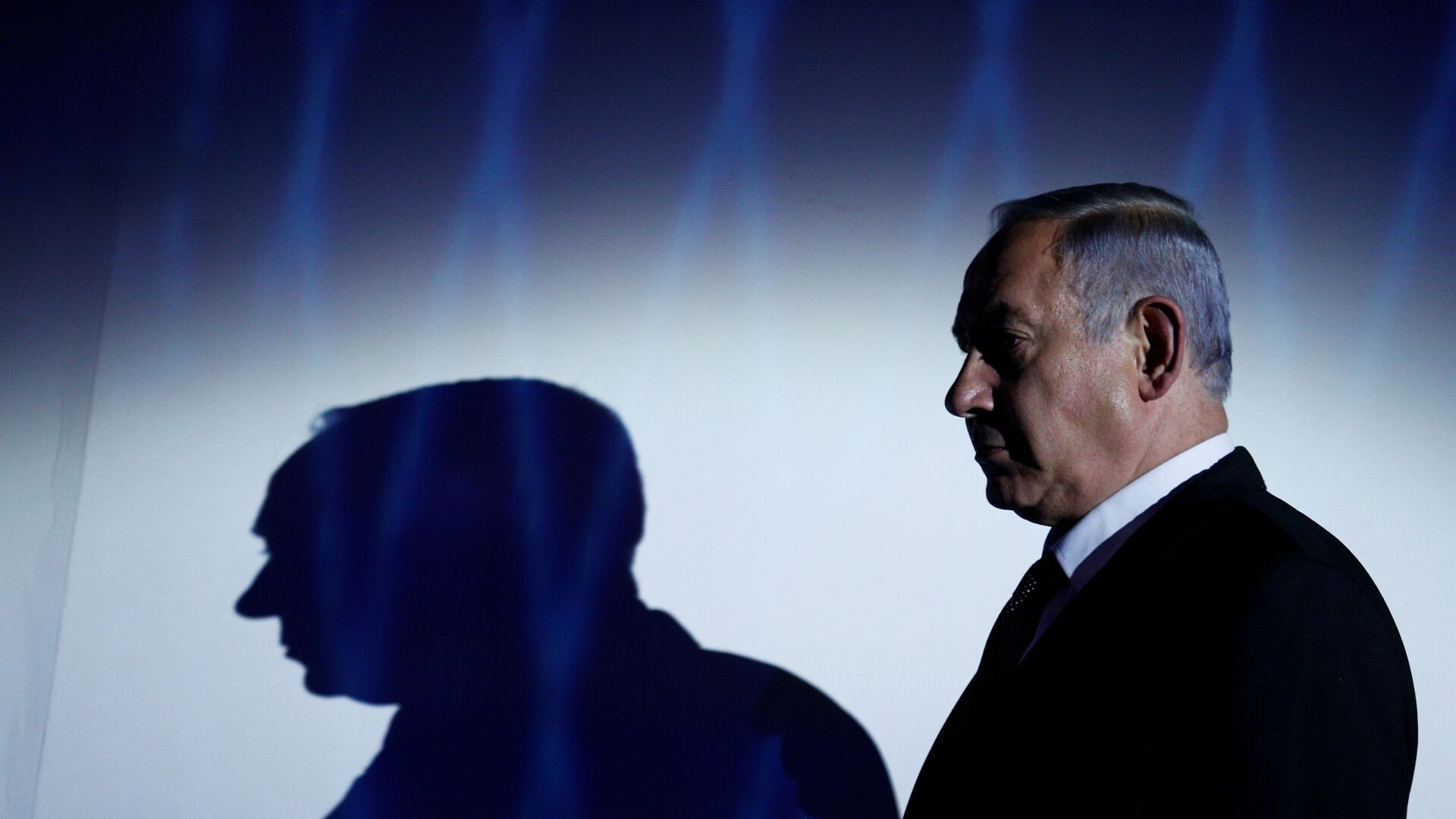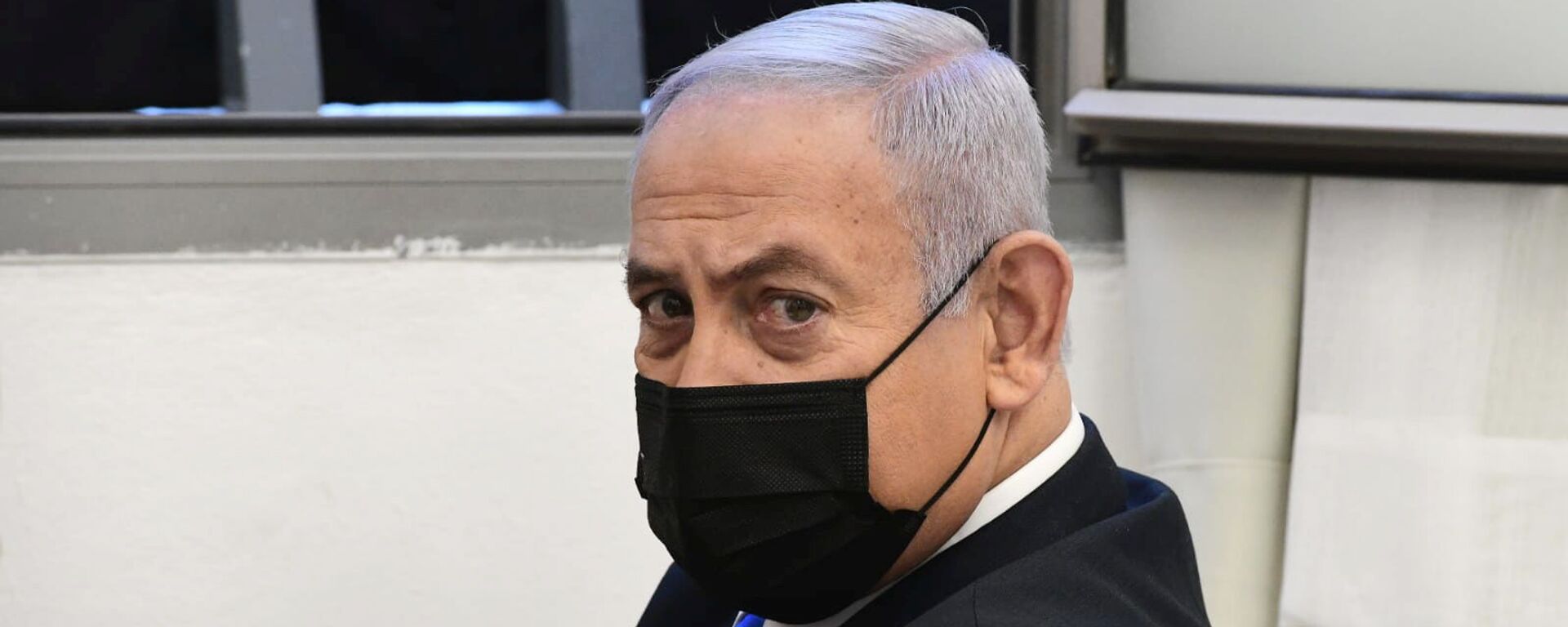Bill Seeks to Bar Politicians With Criminal Charges From Serving as Israeli PM, But Is It Realistic?

© REUTERS / Amir Cohen
Subscribe
The critics of the proposed legislation have been saying that the bill is unprecedented and that it was directed against former Prime Minister Benjamin Netanyahu, who is facing corruption charges in a series of graft probes. But an Israeli expert says such a law is necessary to defend the country's democracy.
With the national budget behind them, the Israeli government can now concentrate on adopting a number of bills that have become important for the Israeli public.
One would limit the tenure of the prime minister to eight years; the bill that has already passed the first reading in the Knesset.
Defending Democracy?
The other one is the attempt to prevent any politician facing criminal charges to form a government. Dr. Amir Fuchs, the head of the Defending Democratic Values Programme at the Israel Democracy Institute, says such a legislation would have a number of advantages,should it be adopted.
"First of all, a prime minister with criminal charges can weaken the system, sabotage the judiciary and, as someone who controls the parliament, can change the laws to suit their interests," said the expert.
"And, secondly, it undermines the credibility of the politician and it sets a bad example for others," he added.
Israel has had a number of politicians facing criminal charges who have served in top positions.
In the early 2000s, then Prime Minister Ariel Sharon was facing criminal charges for his alleged involvement in using foreign donations to fund his primaries campaign. More than a decade later, in 2014, another premier Ehud Olmert was convicted of bribery while serving as the mayor of Jerusalem. And, more recently, former PM Benjamin Netanyahu who caught headlines in his protracted corruption trial.
Way Too Narrow and Unprecedented
The proposed legislation aims to avert such phenomena but Fuchs says the bill has a serious drawback that cannot be ignored.
"The bill is just way too narrow," he says. "It only talks about a candidate to the premiership position that wants to form a government. It doesn't deal with cases of prime minister in office, and it doesn't give the keys on how to treat those individuals when they've already assumed the premiership seat".
It is far from being the only problem associated with the legislation. Another issue is that it looks far too personal.
Proposals to prevent Netanyahu from forming a coalition have been in place since 2019, when Attorney General Avichai Mandelblitt indicted the former PM in a series of graft probes that include buying positive press and receiving expensive gifts from a rich donor.
Netanyahu, who claims innocence, has repeatedly stressed that the legislation had nothing to do with forwarding the principles of democracy. He has also stated that the proposal, which he blasted as an "Iranian bill", was designed to eliminate him politically and that it was an unprecedented practice, unseen anywhere else in the world.
"It is true that this is unprecedented but what's also unprecedented is the fact that a Prime Minister remains in his seat despite corruption charges. And if this is the case, the legislation needs unusual means to deal with abnormal circumstances," explained Fuchs.
It is not yet clear when the proposal will land on the desks of the Israeli Knesset members. The preparations are taking place now but Israeli experts, including Fuchs himself, have been doubtful the bill will eventually become a law.
For it to pass, it will need to obtain a 61 majority at the Knesset but with the coalition largely divided, doubts run high as to whether it will ever happen.
"This bill doesn't have a consensus within the coalition. Interior Minister Ayelet Shaked is against it, and there are others who might object to it too. But even if it does end up being passed, the status of the bill is far from being certain."
Israel does not have a constitution and its basic laws often require a 61 members majority, something that's rather easily achieved by any coalition.
If Netanyahu comes to power in the next round of national polls, a likely scenario given his rising popularity, he will be able to change that law again, and this means that the future of Israeli democracy is far from certain.



